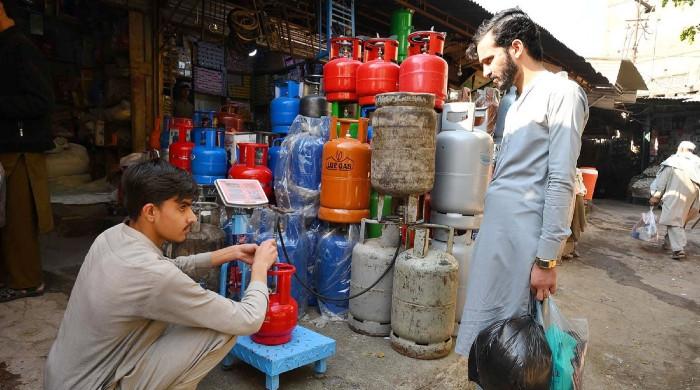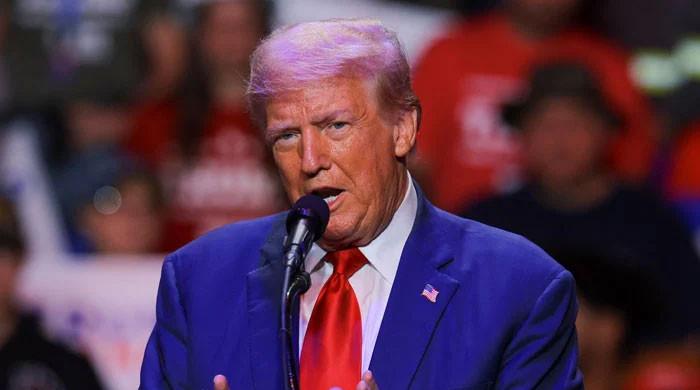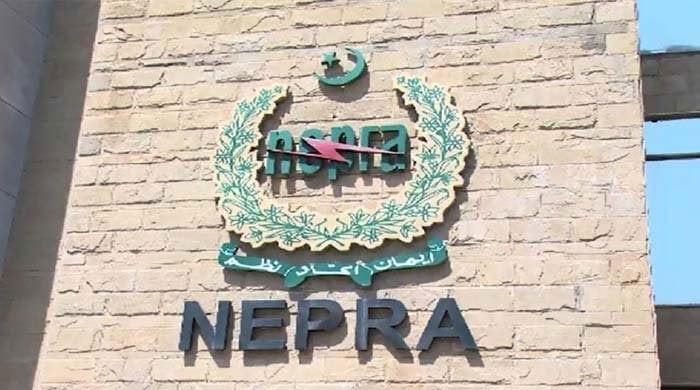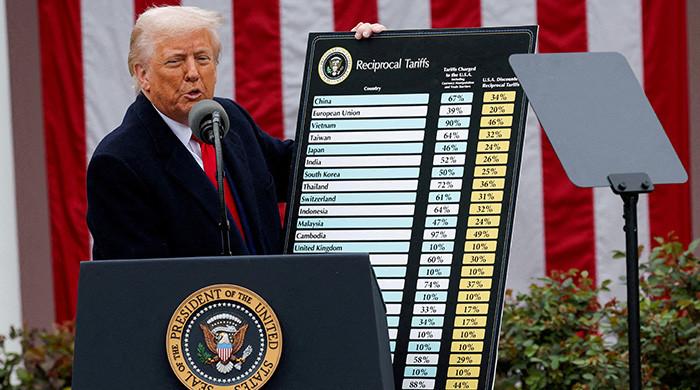Govt cannot afford to subsidise petroleum products: Miftah Ismail
Finance Minister Miftah Ismail says PTI chant's slogans of real freedom but left behind deficit of $48 billion
August 14, 2022
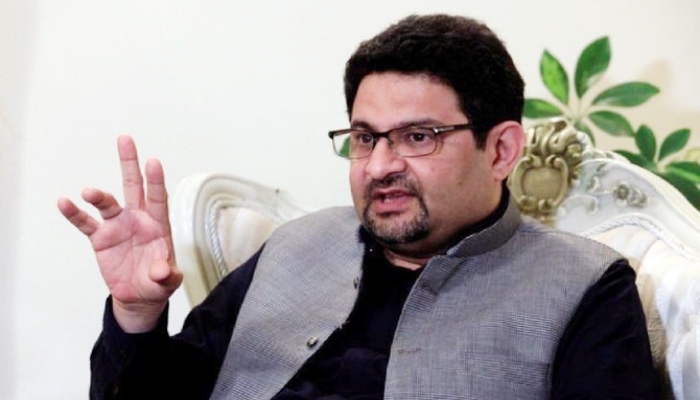
- Finance ministry will not impose any more taxes and levies on petroleum products.
- Miftah Ismail says IMF required Pakistan to seek $4 billion worth of loans from friendly countries.
- Says PTI chant slogans of real freedom but left behind deficit of $48 billion.
Finance Minister Miftah Ismail on Sunday said that owing to the conditions set forth for the country by the International Monetary Fund (IMF), the Government of Pakistan is not in a position to afford any petroleum subsidies.
During Geo News' programme "Naya Pakistan", the finance minister was asked whether the government was planning to reduce the prices of petrol in the country from August 15 in accordance with the decrease in the international market, and the strengthening of the rupee against the dollar.
In response, Ismail said that as per the conditions of the IMF, the country has made arrangements to borrow $4 billion from friendly countries. He added that the finance ministry will not impose any more taxes and levies on petroleum products, but reiterated that the government could not bear any more losses by providing subsidies.
"The IMF has set a condition for us to seek $4 billion worth of loans from somewhere else first before seeking help from the global money lender," he said, adding that the country has successfully managed to get the required loan from some friendly countries.
"We will sign the letter of intent and send it to the IMF by tomorrow," he told the host about the document that Pakistan recieved this week.
Answering another question, the finance minister said that all political parties should sit together and hold talks related to the "charter of economy".
Speaking about the imposition of fixed tax on shops, he said that he "made a mistake to slap an Rs3,000 tax on small shops. He added that the Federal Board of Revenue (FBR) had imposed a tax worth Rs6,000 instead of Rs3,000."
Responding to PTI Chairman Imran Khan's comparison of Pakistan's economy with that of India, Ismail said that the neighbouring state had been building institutes since the 1950s while people in Pakistan were playing gillidanda.
"We have fake factories here to manufacture professors, we hardly paid attention to the country's education sector or its burgeoning population, yet [the PTI] is here to raise the slogans of true freedom. The same party has left behind a deficit of $48 billion," he said.
'More bad days'
Last week, Ismail had said that while the country was going on the "right track" but warned the nation of "more bad days" ahead.
"We are on the right track, but obviously we might see bad days. However, we are on the right track and if we control our imports for three months, we can boost our exports through various means," he said while addressing an event at the Pakistan Stock Exchange (PSX).
Pakistan reached a staff-level agreement with the IMF last month followed by months of deeply unpopular belt-tightening by the government, which took power in April and has effectively eliminated fuel and power subsidies and introduced new measures to broaden the tax base.
The new government has slashed a raft of subsidies to meet the demands of global financial institutions but risks the wrath of an electorate already struggling under the weight of double-digit inflation.
Following the staff-level agreement and the tough decisions, IMF's Resident Representative for Pakistan Esther Perez Ruiz said earlier this week that the country has completed the last precondition — increasing the PDL (petroleum development levy) — for the combined seventh and eighth reviews.
An original $6 billion bailout package was signed by former prime minister Imran Khan in 2019 but repeatedly stalled when his government reneged on subsidy agreements and failed to significantly improve tax collection.




